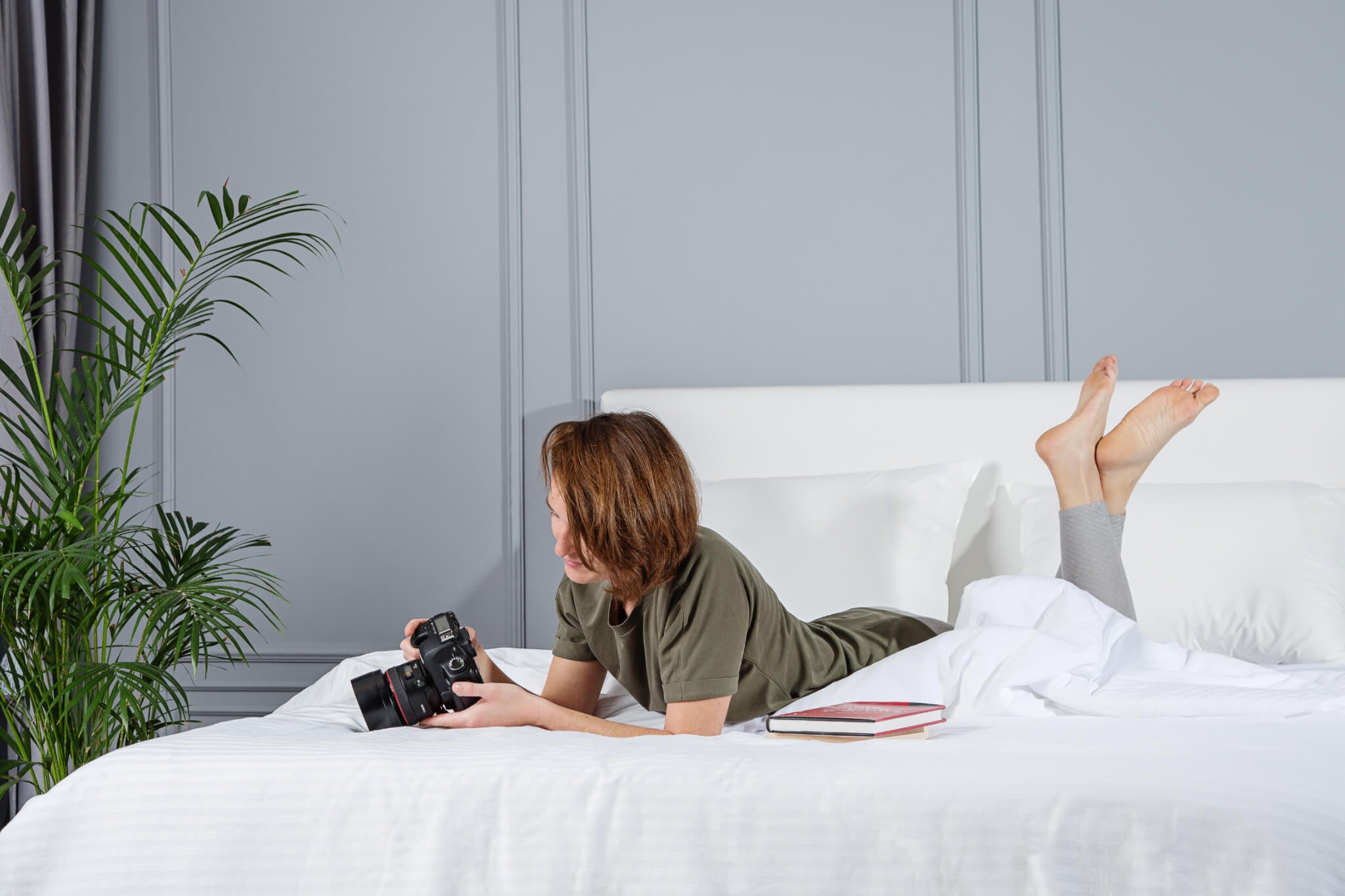Getting a good night’s sleep is the best thing you can do to improve your physical and mental health. What are the activities you should do to prepare yourself for bed?
Here are some tips and tricks to update your sleep routines for better night's sleep.
Article "17 Proven Tips to Sleep Better at Night" is written by Rudy Mawer, MSc, CISSN and published originally in Healthline.com
1. Increase bright light exposure during the day - natural sunlight or bright light during the day helps keep your circadian rhythm healthy
2. Reduce blue light exposure in the evening - electronic devices like smartphones and computers emit large amounts of blue light that tricks your brain into thinking it’s still daytime and reduces hormones like melatonin. For better sleep, please stop using screens 2 hours before bed time

3. Don’t consume caffeine late in the day - caffeine can stay elevated in your blood for 6–8 hours. Therefore, drinking large amounts of coffee after 3–4 p.m. is not recommended, especially if you’re sensitive to caffeine or have trouble sleeping
4. Reduce irregular or long daytime naps - sleeping in the daytime can confuse your internal clock, meaning that you may struggle to sleep at night
5. Try to sleep and wake at consistent times - try to get in the habit of waking up and going to bed at similar times (yes, during weekends too). After several weeks, you may not even need an alarm
6. Take a melatonin supplement - Melatonin is a key sleep hormone that tells your brain when it’s time to relax and head to bed
7. Several supplements can induce relaxation and help you sleep - e.g. magnesium can improve relaxation and enhance sleep quality, lavender can induce a calming and sedentary effect to improve sleep etc.
8. Don’t drink alcohol - it can have negative affect on your sleep quality, melatonin production, can cause or increase symptoms of sleep apnea, snoring, and disrupted sleep patterns etc.
9. Optimize your bedroom environment - make sure your bedroom is a quiet, relaxing, clean, and enjoyable place

10. Set your bedroom temperature - 20°C seems to be a comfortable temperature for most people, although it depends on your preferences and habits
11. Don’t eat late in the evening - consuming a large meal before bed can lead to poor sleep and hormone disruption. Eat on time and focus on what you eat
12. Relax and clear your mind in the evening - set sleep-routine, massage, relaxing music or reading a book. Find your own favourite activities to wind down
13. Take a relaxing bath or shower - this can be part of your wind down activity routine, fits very well for kids, but also older adults
14. Rule out a sleep disorder - if sleep is an issue, check with you doctor, maybe there is an underlying condition you need to fix
15. Get a comfortable bed, mattress, and pillow - your sleeping environment has great effect on your sleep, make sure you sleep in supporting, safe and clean environment. Allergen free and supporting bedding can also be found on our webshop - link

16. Exercise regularly — but not before bed - Regular exercise during daylight hours is one of the best ways to ensure a good night’s sleep
17. Don’t drink any liquids before bed - reduce fluid intake in the late evening and try to use the bathroom right before bed so you do not have to disrupt your sleep
Bottom line:
- Sleep plays a key role in your health.
- One large review linked insufficient sleep to an increased risk of obesity by 89% in children and 55% in adults
- Other studies conclude that getting less than 7–8 hours per night increases your risk of developing heart disease and type 2 diabetes
- If you’re interested in optimal health and well-being, it’s recommended that you make sleep a top priority and incorporate some of the tips above.
Article "17 Proven Tips to Sleep Better at Night" by Rudy Mawer, MSc, CISSN — Medically reviewed by Atli Arnarson BSc, PhD. Link to full post with source links: LINK


